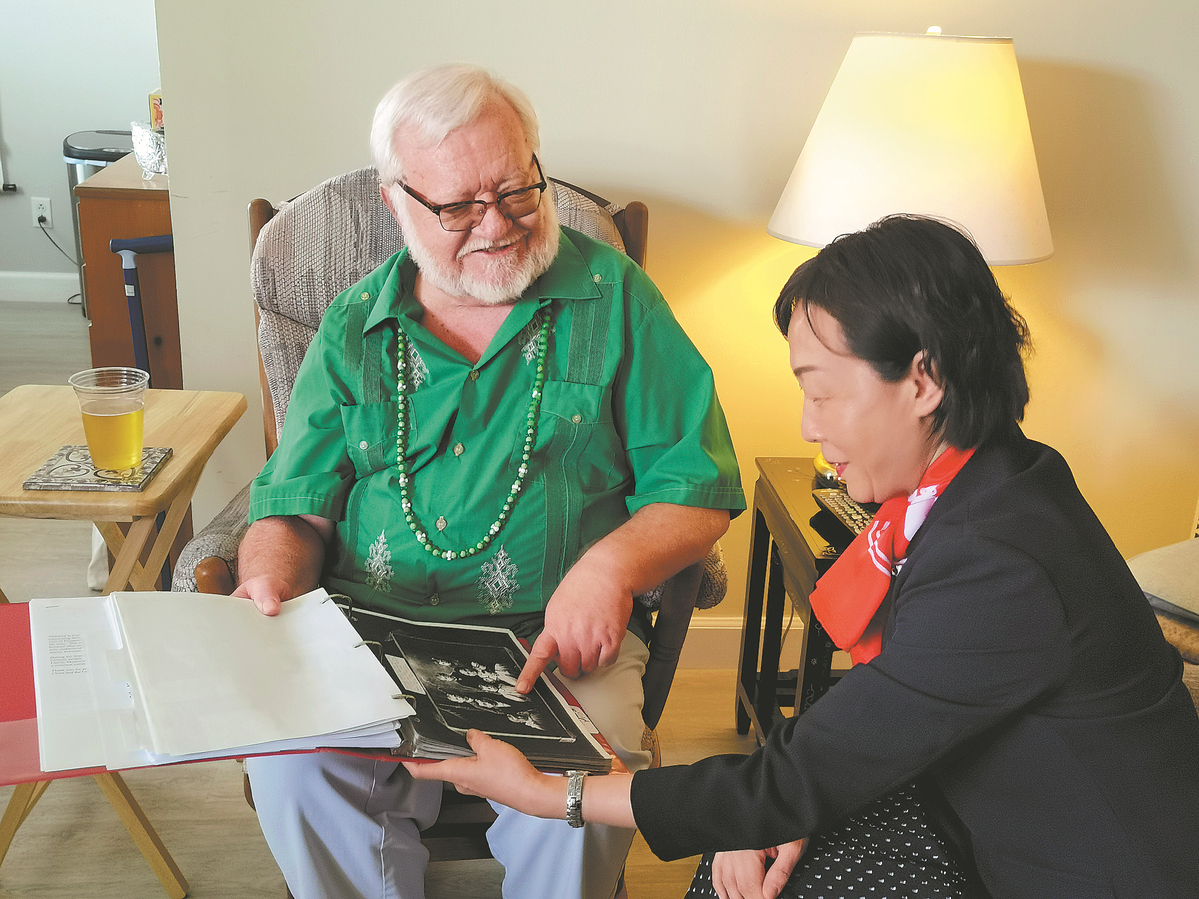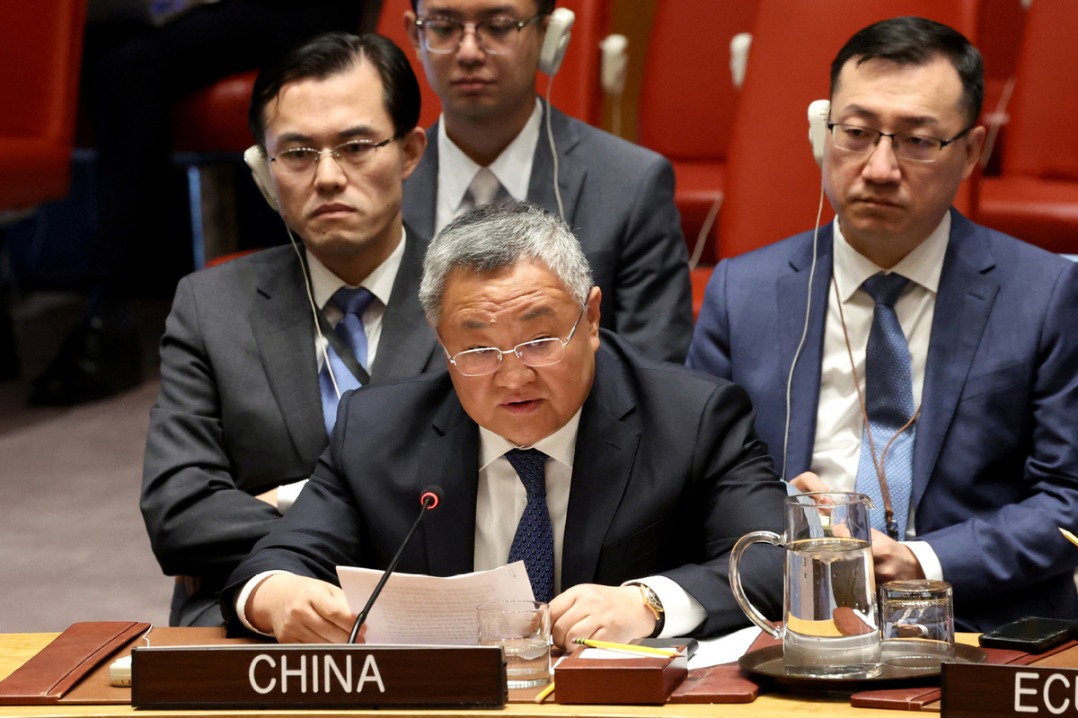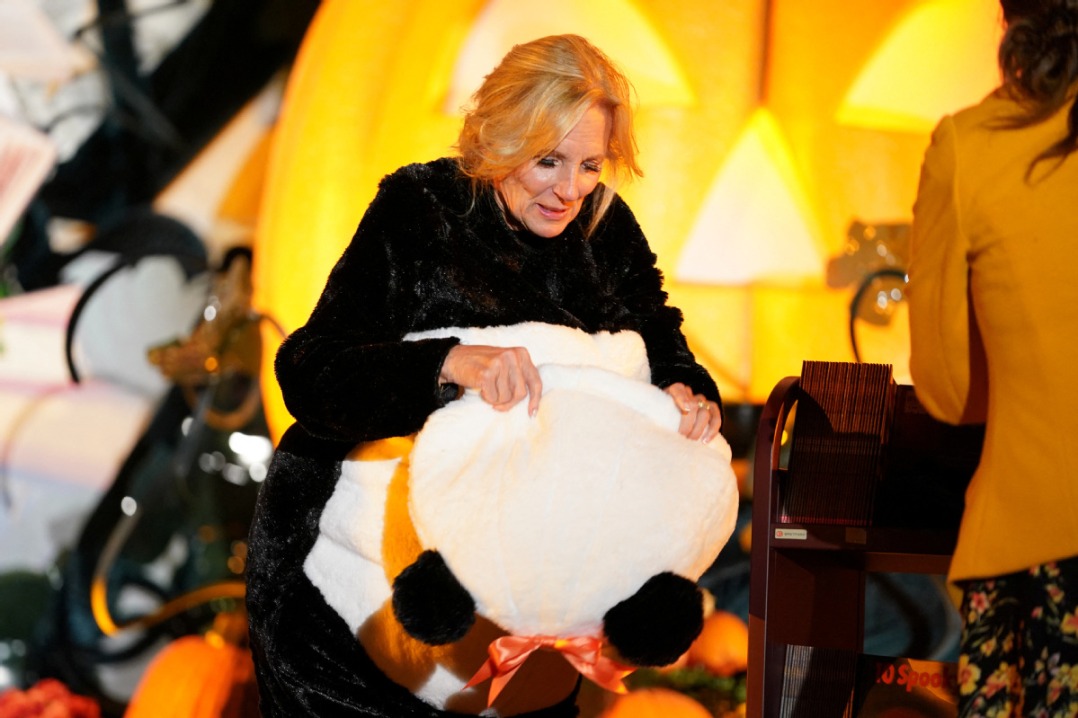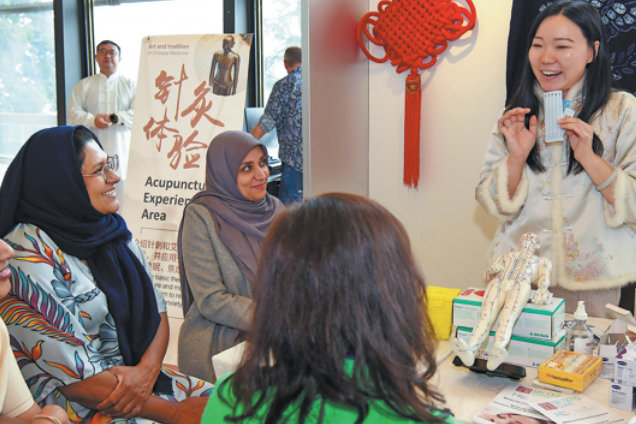Century-long China ties still going strong


Friendship: Events set to carry forward Kuliang bond
A Chinese delegation led by the vice-governor of Fujian province met in California on Sunday with the grandnephew of the late Milton Gardner, whose last words — "Kuliang, Kuliang" — reignited the long-standing bond between his family in the United States and the summer retreat in Fujian where he spent 10 happy years in his childhood.
"Your visit today symbolizes a unity that connects East to West," said the grandnephew, Lee Gardner, as he raised a toast to welcome Vice-Governor Guo Ningning to his home in El Segundo, a beachside city in Los Angeles County.
Guo replied, "Cheers for our friendship."
Gardner, 84, shared with the visitors a family photo album that documents the enduring bond between the Gardner family and Guling — known as Kuliang in the local dialect — a resort area in the suburbs of Fuzhou, the capital of Fujian.
"This album is a historical record for both my family and Kuliang. I'm proud to have presented it to the Chinese people last year," he told China Daily.
Gardner, whose grandfather and father were both born in Ku-liang, described it as his second hometown. His living room is adorned with souvenirs collected from China.
The story of Kuliang dates back to 1886, when a British doctor built the area's first residence. Since then, hundreds of foreigners established their own summer houses there, and Kuliang flourished as a sanctuary for expatriates seeking a rural life.
The expats built villas, hospitals, tennis courts, swimming pools, post offices and other amenities in Kuliang, fostering a profound connection with the local Chinese.
Milton Gardner, who in later life was a physics professor at the University of California, was born in the United States in 1901. He arrived in Fuzhou with his parents as an infant and spent his early years in Kuliang. The family returned to California in 1911.
Throughout his life, Gardner had a deep desire to revisit his childhood home in China, but he never had the chance to fulfill his wish, and his last words were "Kuliang, Kuliang".
"Like many other children who spent their childhoods in Kuliang with their families, my granduncle cherished his time there so much throughout his life," said Lee Gardner. "The memories (were) passed on and have bridged the gap between past and present."
After Milton Gardner's death in 1986, his wife, Elizabeth, made several trips to China in an attempt to honor his dying wish, though she was unable to determine where exactly Kuliang was.
Eventually, however, she discovered among her late husband's belongings 11 faded stamps with postmarks that said "Kuliang, Fu-zhou". With the assistance of a Chinese student, Elizabeth Gardner eventually learned that Kuliang was in the suburbs of Fuzhou.
Upon learning of Gardner's story in an article published in 1992 with the headline "Ah! Kuliang", President Xi Jinping, who was then Party secretary of Fuzhou, sent government officials to reach out to Elizabeth Gardner and extend an invitation for her to visit Kuliang.
"My family and I are so grateful to Xi for realizing our dream; it's a cherished dream," said Lee Gardner.
Gardner, who has been working with a legal aid office that provides free services to impoverished people in Los Angeles, has visited China four times — in 1985, 2012, 2018 and 2023.
"I have witnessed the remarkable changes in Kuliang since 1985," he said. "And what impressed me the most is the spirit of friendship between the two peoples. Our family was always greeted warmly and enthusiastically in China."
In June last year, a group of former Kuliang residents, including Lee Gardner, returned there. Ku-liang Friends, a group of descendants of US families who resided in Fuzhou a century ago or longer, convened to participate in the Bond with Kuliang: 2023 China-US People-to-People Friendship Forum.
President Xi sent a congratulatory letter to the forum, emphasizing that amity between people holds the key to sound relations between countries, and the people are the cornerstone of the growth of state-to-state relations.
In the letter, Xi expressed his hope that both sides will continue to write the Ku-liang story and carry forward the friendly sentiment it embodies, so that the friendship between the two peoples will continue to grow and thrive, like the millennia-old cedar trees in Kuliang.
Lee Gardner said his granduncle remembered climbing the big cedar tree, known as King Tree, in the center of town and, along with his Chinese playmates, finding baby birds.
"The King Tree is a symbol of friendship between us," Gardner said.
Over the past few decades, members of Kuliang Friends and individuals from all walks of life in both countries have delved deeply into Kuliang's history, actively promoted its culture and worked tirelessly to deepen mutual understanding and friendly exchanges between the people of China and the US. A digital archive has been established.
Four rounds of comprehensive renovation and preservation have been carried out in Kuliang since 2017. In 2018, Kuliang was designated a national tourism resort, and it receives millions of tourists each year.
"It's very exciting to see that Ku-liang has been developed into a tourist destination; it offers visitors a glimpse into life as it was a century ago when my family resided there," said Lee Gardner.
After presenting Chinese tea from Fuzhou to Gardner, Guo, the vice-governor, also gave him an invitation letter for the Bond with Kuliang: China-US Youth Week later this year.
With the theme of "carrying forward the bond of Kuliang and deepening friendship", the week will feature workshops, field trips and cultural experiences on topics including diplomacy, climate and religion. The intent is to build a platform for young people from China and the US to exchange ideas, strengthen understanding and enhance friendship, according to the delegation.
"We hope the friendship can be passed on to the next generation," said Guo, adding that young people from both China and the US are welcome to participate in this year's Kuliang friendship forum in June.

































